Hair Transplant in Singapore
Search and Compare the Best Clinics and Doctors at the Lowest Prices for Hair Transplant in Singapore
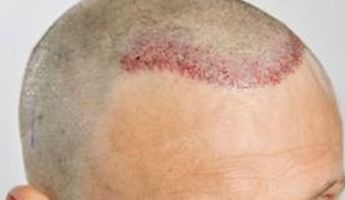
Find the best clinics for Hair Transplant in Singapore
With Medijump you can browse 11 facilities offering Hair Transplant procedures in Singapore. The cheapest price available is $5,979 in Central. And for the cheapest price globally, prices start from $126 in Egypt.
Hair Transplant in Central
Price: $ 5,979
Egypt offers the best prices Worldwide
Price: $ 126
From 22 verified reviews
Elise, 10 September 2020
Got so worried 1 year ago when I saw that my hair was falling out more than usual, hence decided to pay them a visit. You gotta be really disciplined but their treatment really works. Super friendly staff as well.
From 65 verified reviews
Huiqi, 22 September 2020
I have been with Skinlab for over a year now and I enjoy their services. Love how my skin feels after each facial session :) I'm well taken care by Vicky for my facial and am very happy with my experience so far.
From 14 verified reviews
Catherine ANG, 21 January 2020
Highly skilled, personal, attentive- great attention to details and professional Doctor. Generally not too pushy unlike others. Staff are customer service oriented, warm and genuinely friendly.
Terra Medical Clinic, located in Central Area, Central, Singapore offers patients Hair Transplant procedures among its total of 4 available procedures, across 1 different specialties. Currently, there's no pricing information for Hair Transplant procedures at Terra Medical Clinic, as all prices are available on request only, whilst the national average price is approximately $5,979. All procedures and treatments are undertaken by just a small team of specialists, with 2 in total at the Clinic, and they are not accredited by any recognized accreditations institutes
SkinLab Medical Spa - Orchard Road, located in Bishan, Central, Singapore offers patients Hair Transplant procedures among its total of 50 available procedures, across 4 different specialties. Currently, there's no pricing information for Hair Transplant procedures at SkinLab Medical Spa - Orchard Road, as all prices are available on request only, whilst the national average price is approximately $5,979. All procedures and treatments are undertaken by just a small team of specialists, with 2 in total at the Hospital, and they have multiple recognized accreditations, including: MBBS - Bachelor of Medicine, Bachelor of SurgeryAAAM - American Academy of Aesthetic Medicine
Singapore's Hair Transplant Clinic, located in Central Area, Central, Singapore offers patients Hair Transplant procedures among its total of 4 available procedures, across 1 different specialties. Currently, there's no pricing information for Hair Transplant procedures at Singapore's Hair Transplant Clinic, as all prices are available on request only, whilst the national average price is approximately $5,979. All procedures and treatments are undertaken by the lead specialist at the Clinic, and they have multiple recognized accreditations, including: ISHRS - International Society of Hair Restoration SurgeryAACS - American Academy of Cosmetic SurgeryABHRS - American Board of Hair Restoration Surgery
Asra Hair Restoration Clinic, located in Bishan, Central, Singapore offers patients Hair Transplant procedures among its total of 3 available procedures, across 1 different specialties. Currently, there's no pricing information for Hair Transplant procedures at Asra Hair Restoration Clinic, as all prices are available on request only, whilst the national average price is approximately $5,979. All procedures and treatments are undertaken by the lead specialist at the Clinic, and they are not accredited by any recognized accreditations institutes
The Knightsbridge Clinic, located in Bishan, Central, Singapore offers patients Hair Transplant procedures among its total of 4 available procedures, across 2 different specialties. Currently, there's no pricing information for Hair Transplant procedures at The Knightsbridge Clinic, as all prices are available on request only, whilst the national average price is approximately $5,979. All procedures and treatments are undertaken by the lead specialist at the Clinic, and they are not accredited by any recognized accreditations institutes
Lao Fo Ye Hair Care, located in Bishan, Central, Singapore offers patients Hair Transplant procedures among its total of 4 available procedures, across 2 different specialties. Currently, there's no pricing information for Hair Transplant procedures at Lao Fo Ye Hair Care, as all prices are available on request only, whilst the national average price is approximately $5,979. All procedures and treatments are undertaken by the lead specialist at the Hospital, and they are not accredited by any recognized accreditations institutes
SkinLab Medical Spa - Plaza Singapura, located in Bishan, Central, Singapore offers patients Hair Transplant procedures among its total of 7 available procedures, across 3 different specialties. Currently, there's no pricing information for Hair Transplant procedures at SkinLab Medical Spa - Plaza Singapura, as all prices are available on request only, whilst the national average price is approximately $5,979. There is currently a lack of information available on the specialists practicing at the Hospital, and they are not accredited by any recognized accreditations institutes
Freia Medical Aesthetics, located in Bishan, Central, Singapore offers patients Hair Transplant procedures among its total of 21 available procedures, across 5 different specialties. Currently, there's no pricing information for Hair Transplant procedures at Freia Medical Aesthetics, as all prices are available on request only, whilst the national average price is approximately $5,979. All procedures and treatments are undertaken by the lead specialist at the Hospital, and they have multiple recognized accreditations, including: ISHRS - International Society of Hair Restoration SurgeryAAAM - American Academy of Aesthetic MedicineSAMS - Society of Aesthetic Medicine SingaporeSMA - Singapore Medical Association
- Home
- Singapore
Compare Before & After Photos of _procedure_photos.phpHair Transplant
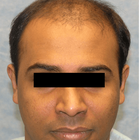
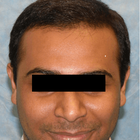
Front view
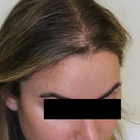
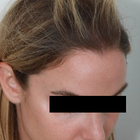
Half-side view
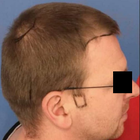
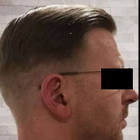
Full-side view
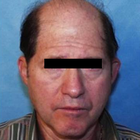
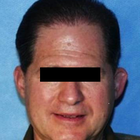
Front view
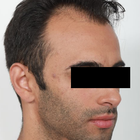
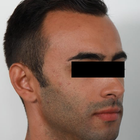
Half-side view
WHY US?
At Medijump, we're making medical easy. You can search, compare, discuss, and book your medical all in one place. We open the door to the best medical providers worldwide, saving you time and energy along the way, and it's all for FREE, no hidden fees, and no price markups guaranteed. So what are you waiting for?

Free

Best Price

Widest Selection

Risk-Free
What you need to know about Hair Transplant in Singapore
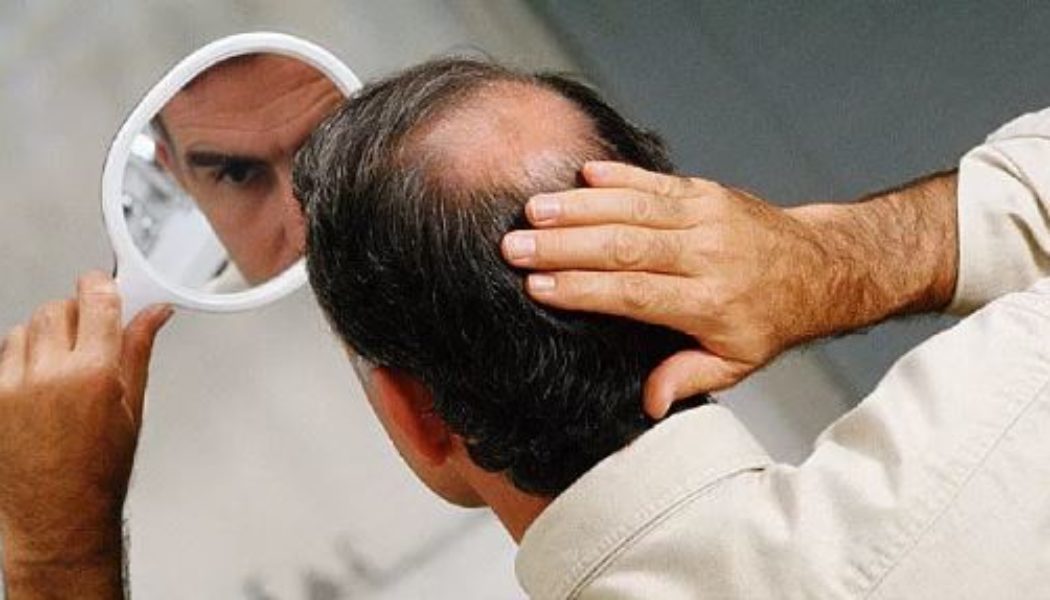
Hair Transplantation, also known as hair restoration surgery, is the surgical process of moving hair follicles from one part of the body that is rich in hair (known as a donor site) and embedding them at the the bald area of the head (recipient site). The medical course of action that aims at addressing hair loss issues and improving aesthetics. While there are many causes of hair loss, the most common reason, especially for men, is genetics. Hereditary hair loss as men age is the number one leading factor of baldness.
It is a minimally invasive procedure, performed under local anesthetic and is most commonly used to treat male baldness, but the technique can also be used to restore eyelashes, eyebrows, beard hair and to fill in scars. The procedure usually lasts between 4 to 8 hours, depending on the number of grafts needed. This procedure is a long-term solution to hair loss, with most patients experiencing significant improvement in hair growth after six months to a year.
Why do people experience hair loss?
We lose an average of 100 hairs a day, however, these hairs are immediately replaced by new hairs growing at the same time. Hair loss can occur suddenly or gradually and it may affect your scalp or your entire body, depending on what’s causing it. Other causes of hair loss may include:
- Stress - a lot of people may experience hair thinning for several months due to a physical or emotional shock. However, this type of hair loss is only temporary.
- Certain Hairstyles and treatments - hairstyles that pull your hair like tight pigtails, ponytails or braids can actually cause traction alopecia. Permanent hair treatments and hot oil treatment may also lead to hair loss; these hair treatments cause inflammation to the hair follicles. If there is scarring, hair loss may be permanent.
- Radiation Therapy - for example, during cancer treatment.
- Certain medical conditions and hormonal changes - in women, hormonal changes due to pregnancy, childbirth menopause or thyroid problems may cause temporary or permanent hair loss. As for medical conditions, hair loss may be due to alopecia, scalp infections like ringworm or a hair-pulling disorder known as trichotillomania.
Sudden hair loss may also be a sign of a specific medical condition that will require treatment. You will need to consult your doctor if you experience more than your usual hair loss whenever you are combing or washing your hair and also if you encounter a sudden patchy loss of hair.
A hair transplant is a common treatment performed on people who are experiencing baldness due to aging and heredity factors. However, if you are completely bald with absolutely no hair left, then this type of treatment may not be applicable for you, as you won't have sufficient donor hair to supply.
What is the cost of Hair Transplant in Singapore?
The cost of Hair Transplant in Singapore is typically influenced by various factors. These may include the experience and reputation of the surgeon, the complexity of your case, and the total number of grafts needed. Moreover, the pricing strategy followed by the medical establishment also plays a significant role. Some clinics charge based on the number of grafts transplanted, while others might price the procedure as a package. The exact price can therefore only be determined in consultation with a trusted clinic. While it can appear costly to some, the Hair Transplant is an investment in one's appearance and self-confidence.
What Does The Procedure Involve?
The hair transplant procedure involves taking hair from your Donor Site and transferring it to the area(s) lacking in hair, the Recipient Site, and a local anesthetic will be applied before the procedure begins to limit any discomfort.
There are two main methods used in a hair transplant procedure:
- Follicular Unit Transplantation (FUT) - strips of tissue will be removed from your donor area, these strips will be cut into individual follicular units. Small cuts will be made on your scalp where the follicular unit grafts will be placed. This method is becoming less popular.
- Follicular Unit Extraction (FUE) - individual hair follicles will be directly extracted from your donor area and moved to your recipient site using a specialist microsurgical needle. FUE is now the preferred technique for hair transplants as it will not leave a linear scar at the back of the head.
Procedures are undertaken by a fully qualified technician and usually involve the extraction of around 3,000 grafts, going up to 4,000. Any more, and it will likely require two separate sittings to complete.
How Long Should I Stay in Singapore for a Hair Transplant Procedure?
Hair transplants are usually performed as an outpatient procedure. Thus, you will be able to go back to your hotel immediately after. Both methods used for Hair Transplant treatments usually take 4-8 hours to complete. With FUE technique, there are no stitches or staples to be removed, so you won't need to stay in Singapore for long after the procedure, just allow a day or two to be sure before traveling home.
You should expect to pay the clinic another visit the day after the treatment so the doctor can remove the bandage, examine the areas of intake and transplantation of follicles, before washing your hair using a special technique that you will learn to perform by yourself. Finally, the doctor will provide you with a special shampoo that will help to restore the skin.
What's the Recovery Time for Hair Transplant Procedures in Singapore?
Your scalp will continue to be sensitive to pain for a few days, during which time you should continue to take the medications provided by the doctor. On top of the pain killers and anti-inflammatory meds, you may also be given antibiotics to lessen the risk of infection, as uncommon as this may be.
You should expect to return to work and your daily routine, including exercise, after 5 days. However, the signs of a hair transplant will remain for at least another 2-3 weeks, at which point the newly transplanted hairs will start to fall out - but don't be alarmed! This is to be expected as you've just had a follicle extraction, so dead hair will simply make way for new hair over the coming weeks and months.
If the average person's hair only grows at a centimeter per month, then it will take some time before you can wear your hair long again. You could expect to display short and consistent hair just 4-6 weeks after the treatment.
What sort of Aftercare is Required for Hair Transplant Procedures in Singapore?
After the procedure is complete, anti-swelling medication and painkillers will be available and you'll be provided with various essentials to see you through the days immediately following. Post-op items may include; specialist shampoo, lotion, multivitamins, a special hat, a headband, neck pillow, and wound dressing.
Having already been provided with your post-op aftercare products, you may also be offered Platelet Rich Plasma (PRP) Therapy to help stimulate the hair follicles and encourage hair growth. This is where a small amount of blood is taken, rich in plasma, which is then injected into the Recipient Site.
What's the Success Rate of Hair Transplant Procedures in Singapore?
The success rate for hair transplants is one of the highest, at 98% and is considered the only truly effective remedy for hair loss.
The effectiveness of Hair Transplant treatments is significantly shaped by the surgeon's expertise who executes the process. A seasoned and competent surgeon employs sophisticated methods to prevent harm to the transplanted hair follicles during the process, which leads to a higher likelihood of success. Additionally, the ability of the surgeon to place the grafts in an attractive manner that resembles natural hair growth further enhances the perceived successfulness of the result.
Beyond the competency of the surgeon, the overall health status and lifestyle choices of the patient greatly impact the treatment's effectiveness. Subpar habits such as excessive smoking and alcohol intake can obstruct the recovery process and influence the result adversely. Illnesses like diabetes can also interfere with the likelihood of success.
Consideration of the donor hair's quality is another aspect that may affect the success of the procedure. Generally, those with robust, plentiful hair in the donor region have a higher success rate as compared to individuals with sparse or poor-quality hair. The availability of more follicles for transplantation yields better results. A detailed examination is carried out before the Hair Transplant to verify the quantity and quality of the donor's hair.
Are there Alternatives to a Hair Transplant?
Laser therapy is one alternative to a hair transplant. During this procedure, a low-level laser device will be used as a treatment for a hair loss specifically caused by genetics. This low-level laser with a wavelength of 650 nanometres can actually stimulate your hair growth. However, long term effects for this type of alternative still remains uncertain.
PRP Therapy is another alternative you can consider. This type of treatment will make use of your own blood to promote hair growth. Your blood will be spun in a centrifuge to separate your blood’s plasma component from your red and white blood cells. Plasma contains many growth factors that promote hair growth when injected into the scalp.
Other non-surgical alternatives could include simply shaving all your hair off, trying other hairstyles or using a wig or hairpiece.
How do FUT and FUE Compare?
The two most common techniques used are the Follicular Unit Transplant (FUT) and the Follicular Unit Extraction (FUE). How do they compare?
1. FUT, also referred to as FUSS (Follicular Unit Strip Surgery), involves the removal of a strip of skin from the back of the head containing lots of hair follicles, which is stitched up and hidden by the surrounding hair. Then the strip of follicles is divided into 500-2,000 tiny grafts containing just a few hairs. These are then embedded across the bald area of the head.
2. FUE does not require a strip of skin to be removed, instead, the hair follicles are individually removed from the donor site and positioned across the bald area in tiny slits created by a scalpel or needle.
What are the Risks Associated with Hair Transplant?
Like any surgical procedure, Hair Transplant carries certain risks, although they are relatively rare and usually minor if performed by a skilled and experienced surgeon.
Some potential risks and side effects could include:
- Scarring is the most common side effect (only applicable to FUT)
- Infections
- Temporary loss of sensation around the surgical sites
- Inflammation of hair follicles (folliculitis)
- Temporary scalp pain, itching, and swelling.
- Unnatural-looking hair growth
Whilst the information presented here has been accurately sourced and verified by a medical professional for its accuracy, it is still advised to consult with your doctor before pursuing a medical treatment at one of the listed medical providers
No Time?
Tell us what you're looking for and we'll reachout to the top clinics all at once
Enquire Now

Popular Procedures in Singapore
Prices Start From $153

Prices Start From $500

Prices Start From $4

Prices Start From $500

Recommended Medical Centers in Singapore for Hair Transplant

- Interpreter services
- Translation service
- Religious facilities
- Medical records transfer
- Medical travel insurance
- Health insurance coordination
- TV in the room
- Safe in the room
- Phone in the room
- Private rooms for patients available

- Interpreter services
- Translation service
- Religious facilities
- Medical records transfer
- Medical travel insurance
- Health insurance coordination
- TV in the room
- Safe in the room
- Phone in the room
- Private rooms for patients available

- Interpreter services
- Translation service
- Religious facilities
- Medical records transfer
- Medical travel insurance
- Health insurance coordination
- TV in the room
- Safe in the room
- Phone in the room
- Private rooms for patients available

- Interpreter services
- Translation service
- Religious facilities
- Medical records transfer
- Medical travel insurance
- Health insurance coordination
- TV in the room
- Safe in the room
- Phone in the room
- Private rooms for patients available

- Interpreter services
- Translation service
- Religious facilities
- Medical records transfer
- Medical travel insurance
- Health insurance coordination
- TV in the room
- Safe in the room
- Phone in the room
- Private rooms for patients available

- Interpreter services
- Translation service
- Religious facilities
- Medical records transfer
- Medical travel insurance
- Health insurance coordination
- TV in the room
- Safe in the room
- Phone in the room
- Private rooms for patients available

- Interpreter services
- Translation service
- Religious facilities
- Medical records transfer
- Medical travel insurance
- Health insurance coordination
- TV in the room
- Safe in the room
- Phone in the room
- Private rooms for patients available

- Interpreter services
- Translation service
- Religious facilities
- Medical records transfer
- Medical travel insurance
- Health insurance coordination
- TV in the room
- Safe in the room
- Phone in the room
- Private rooms for patients available

- Interpreter services
- Translation service
- Religious facilities
- Medical records transfer
- Medical travel insurance
- Health insurance coordination
- TV in the room
- Safe in the room
- Phone in the room
- Private rooms for patients available

- Interpreter services
- Translation service
- Religious facilities
- Medical records transfer
- Medical travel insurance
- Health insurance coordination
- TV in the room
- Safe in the room
- Phone in the room
- Private rooms for patients available
Hair Transplant in and around Singapore
About Singapore
Singapore is a small, yet beautiful island city-state in South East Asia. The country's growth and prosperity in terms of infrastructure and economy are astounding and Singapore is affluent and tax-friendly and its GDP is on par with developed European nations.
Singapore is a global center for education, technology, tourism, trade, logistics, and healthcare. Medical expenses in Singapore are expensive when compared to Thailand and India. Yet, the country attracts medical tourists with its cleanliness, world-class medical infrastructure, and facilities. A C-section will cost anywhere between $6,048 and $11,267 in Singapore. Hip replacements can cost around $8,550-$12,850 and breast lump removal will cost you $5,459-$10,700 including a private room.
The country has 15 JCI accredited hospitals and medical centers, which offer a variety of services from orthopedics, dermatology, dental, cardiology, ophthalmology, and cosmetic procedures to alternative therapies such as acupuncture and Ayurveda. English-speaking medical professionals are extremely skilled and experienced. The hospitals in Singapore have access to cutting edge technologies and it is the best country to treat life-threatening, complex conditions.
It is advisable for medical tourists to have an International Health Insurance Plan to cover surgical costs. Most of the reputed hospitals in Singapore will only admit foreign patients with health insurance.
Medical care in Singapore is not just about getting preventive care and treatments for medical conditions that one may have. Some of the health care centers in Singapore are super luxurious and you can even order your food and shop using wireless tablets provided and make use of the nearby spas. Popular Hospitals and Clinics are the Farrer Park Hospital, Gleneagles Hospital Singapore, Mount Elizabeth Hospital, Parkway East Hospital, and Thomson Medical Centre.
Popular parts of Singapore
Singapore is home to over 5.5 million people and its cultural diversity is displayed in the extensive ethnic cuisine and major festivals. Singapore ranks number ten in the world for skyscrapers.
- Sentosa: Each of Sentosa’s three beaches: Siloso, Palawan, and Tanjong—hold their own unique charms. Palawan beach’s islets and playgrounds are great spaces for families to unwind. Resorts World Sentosa is home to several amazing experiences. Take a movie-themed ride at Universal Studios Singapore, or immerse yourself in aquatic adventures at the S.E.A. Aquarium.
- Marina Bay: If you wish to explore the extravagant side of Singapore, visit the stunning, Marina Bay. The Nightlife is amazing with glittering lights, glitzy rooftop bars, and restaurants. Marina Bay is the central and the busiest district of Singapore.
- Chinatown: You can experience an impressive blend of traditional and modern Singapore in Chinatown. There are ornate Chinese, Buddhist and Hindu temples, museums and plenty of opportunities to soak up the busy streets which are full of old shophouses. It is the perfect location for traditional cuisine and you will be spoilt for choice.
- Orchard: The 2 km long Orchard Road is a shopper’s paradise as you will find large shopping malls and designer’s stores. Singapore’s only UNESCO World Heritage site, the Botanical Garden lies at the corner of Orchard Road.
- Joo Chiat: This neighborhood is more residential and you will find an amazing range of housing options.
- Little India: is the center of the Indian community within Singapore and is filled with multicolored shop-houses that line the streets, and various mosques and temples, and enjoy the aromas that infuse the night air when the demand for food is at its peak.
Weather and Climate in Singapore
Singapore lies close to the equator in the Southern Hemisphere. The island country has a tropical climate. It is hot and humid throughout the year which has led to a steady inflow of tourists all year round.
Singapore receives an annual rainfall of 2430 mm. An average of 167 days receives moderate to heavy rainfall. Two different monsoons: Northeast (December to March) and Southwest monsoon (May to September) accounts for the rainfall. Thunderstorms are quite common during the Southwest monsoon.
The average temperature is 31°C during the day. It is most likely that the temperature can drop to 19°C during the hours of darkness.
Getting around in Singapore
Rated as the world's best airport by Skytrax, Singapore Changi Airport is one of the busiest airports in the World. The airport serves around 100 airlines, flying to 400 cities across 100 countries. You can hire a taxi or use the MRT to reach downtown Singapore.
The transport system is efficient due to the systematic and comprehensive network of roadways. The Land Transport Authority controls private vehicles and minimizes traffic congestion. Some of the common forms of transportation are:
- Mass Rapid Transit (MRT): The MRT has a total of five lines. You can buy a Singapore Tourist Pass or EZ Link card which allows you to use the railways any number of times for two or three days. A single journey costs 0.58 USD and a train arrives every 2-3 minutes during the peak hours.
- Public buses: There are over 300 public buses to serve the locals and tourists and bus fares range from 0.58 USD to 2.07 USD.
- Taxis: are widespread in Singapore and are less expensive and metered. It can cost you 2.63 USD per km.
- Water taxis: Will take you across the beautiful River Singapore. You can visit a few tourist spots via water taxis and view the downtown from a different angle. A single journey will cost 5 USD.
Tourist Visa in Singapore
Citizens of India, China and Russia require a valid tourist visa to enter the territory of Singapore. The visa processing time is just 5 days and it is valid for 90 days from the date of issue. You are allowed to stay here for a maximum of 30 days.
People from the European Union, US, Norway, South Korea, Australia, and New Zealand can enter and stay for 90 days in Singapore visa-free.
Additional Information
- Singapore dollar (S$) is the official currency of Singapore. 1 USD is equivalent to 1.36 Singapore dollars.
- You can find ATMs close to banks, shopping malls and almost every tourist location. You can also pay by using credit and debit cards.
- Malay is the national language of Singapore. Mandarin, English, Malay, and Tamil are the four other official languages of the country. So, almost all the locals are fluent in English.
- Singapore is home to 10 religions. 33% of the total population practice Buddhism, followed by Christianity and Islam.
- New Year's Eve, Chinese New Year, Labour’s day, Good Friday, Deepavali, Vesak day, Hari Raya Puasa and Christmas are some of the public holidays in Singapore.
Popular Searches
- Plastic Surgery in Thailand
- Dental Implants in Thailand
- Hair Transplant in Thailand
- Breast Augmentation Thailand
- Gastric Sleeve in Thailand
- Gender Reassignment Surgery in Thailand
- Laser Hair Removal in Bangkok
- Botox in Bangkok
- Dermatology in Bangkok
- Breast Augmentation in Bangkok
- Coolsculpting in Bangkok
- Veneers in Turkey
- Hair Transplant in Turkey
- Rhinoplasty in Turkey
- Stem Cell Therapy in Mexico
- Rhinoplasty in Mexico
- Liposuction in Mexico
- Coolsculpting in Tijuana
- Rhinoplasty in Korea
- Scar Removal in Korea
- Gastric Sleeve in Turkey
- Bone Marrow Transplant in India
- Invisalign in Malaysia
- Plastic Surgery in the Dominican Republic
- Tummy Tuck in the Dominican Republic
- Plastic and Cosmetic Surgery in Poland
- Rhinoplasty in Poland
- Hair Implant in Poland
- Dental Implants in Poland
- IVF in Turkey







